
France has always been a popular destination for UK nationals to retire to. Currently, there are nearly 150,000 Britons living in France, making France the second most popular European country for British nationals (after Spain).
If you are thinking of retiring to France from the UK during 2026, we highlight the popular places for retirement in France and some key information on pensions, tax, healthcare and living in France for retirees.
The British in France
It is often said that the British are actually French (on account of the Norman conquest) and that the people from Bretagne are actually British (having been driven out of South-West Britain following the arrival of the Anglo-Saxons between the 3rd and 9th centuries). It is certainly true that the French and English languages share around 3,000 common words (communication, diplomat, entrepreneur, etc) and our history has been intertwined for over 1,000 years (for example, it was only in the 18th Century that the Kings and Queens stopped adding King of France to their list of titles).
Currently, UK nationals represent 0.2% of the French population. Although they are still outnumbered by the Portuguese (546,100 inhabitants), the Italians (194,600 inhabitants) and the Spanish (157,400 inhabitants), the British still outweigh the numbers of other Northern European countries, such as the Belgians, the Germans, Swedish or the Dutch.
Despite being only the 4th most populous group of foreign residents in France, the British are the largest group of non-French homeowners in France, with over 86,000 Britons owning second homes in France. To put this into perspective, twice as many British people own a house in France (per-captia) than people from Belgium, Italy or Switzerland combined.
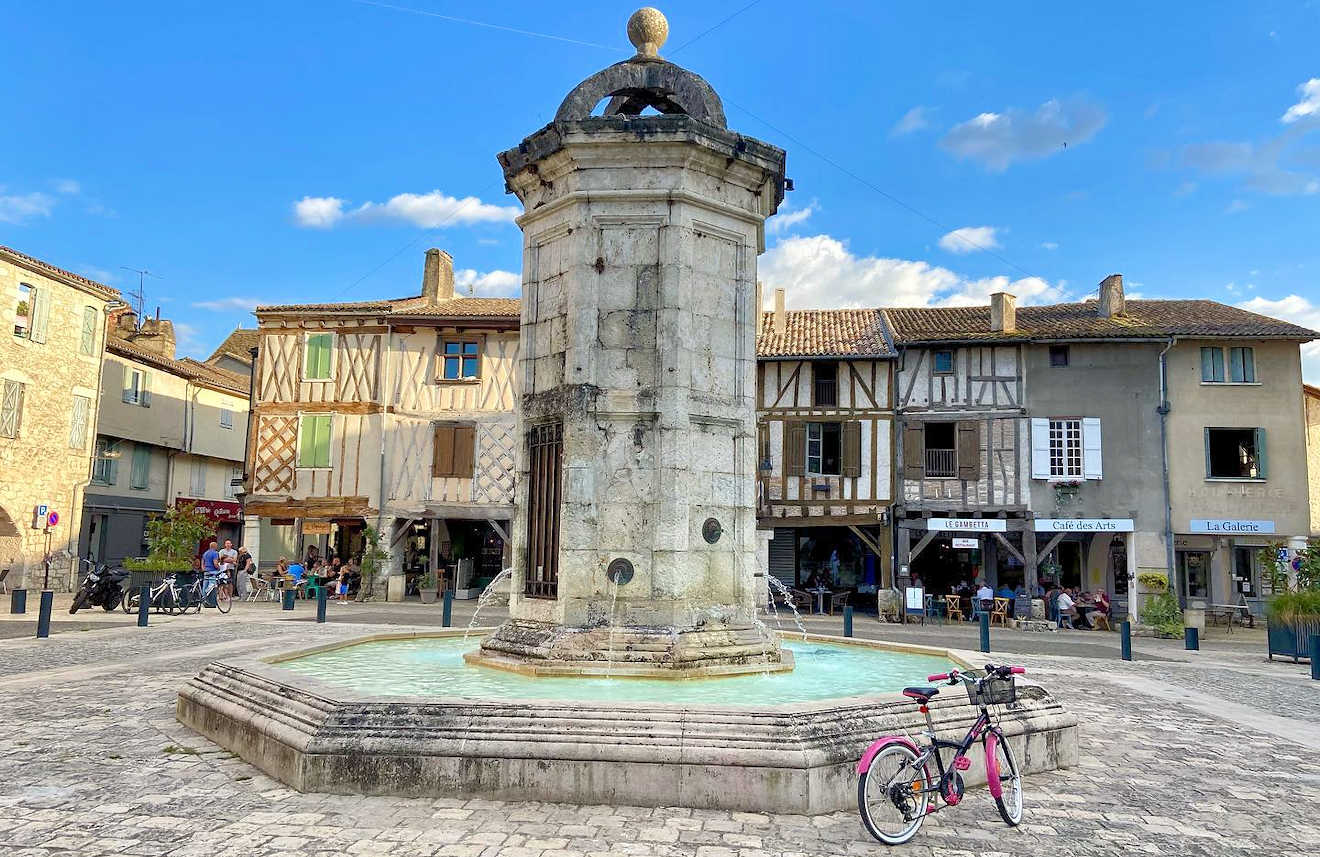 Eymet Dordogne France
Eymet Dordogne France
British nationals more often choose to live in the least populated regions of France, in search of more affordable property. British residents are especially concentrated in a vast area that stretches from Haute-Vienne to Gers, encompassing Charente and Dordogne. Interestingly, 43% of British residents who have settled in France live in Nouvelle-Aquitaine or in Occitanie (39,200 and 24,900 respectively). There are also greater numbers of Britons in Brittany and southwest Normandy, areas that are closer to the English coasts. In this respect, they differ from the Belgians and Germans who prefer the more urbanised border areas of Eastern France. The survey from the French Statistics office (INSEE), shows that 19% of British people live in very sparsely populated communes, compared with just 9% of Belgians and 5% of Germans.
The French Statistics Office, INSEE, reports that the presence of the British community in France is the result of migratory movements that began at the end of the 20th century. In 1990, there were just 65,300 British living in France. 26 years later, this number had more than doubled and between 1999 and 2006 it continued to grow at a fast rate (increasing by 5.5% or around 6,000 people per year). This period coincided with a sharp rise in property prices in the UK (freeing up larger capital from house sales and down-sizing), as well as the developments of low-cost air routes to France. Regular flights between France and the UK tripled between 1996 and 2007. The Channel tunnel also entered into operation at the beginning of this period [SOURCE: INSEE, 1990-2016 population census].
Where do the British live in France?
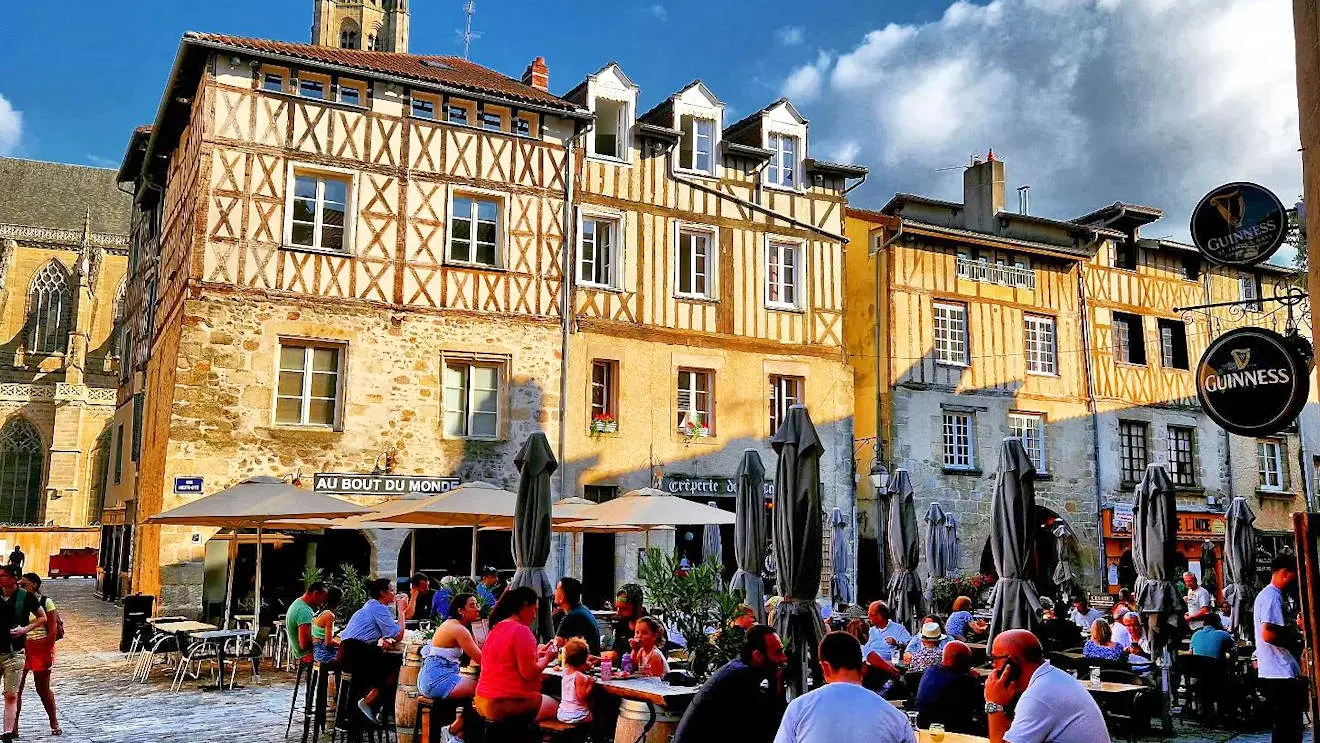 Limoges France
Limoges France
INSEE report that the British residents in France can be broken down into four distinct groups:
- Retirement destinations - the over-55 age group of British ex-Pats strongly favour the sparsely populated areas of Western France (such as Creuse, Haute-Vienne, Charente, Vienne, and Dordogne) and the Languedoc in Southern France. 56% of the Britons living in these areas are classed as retired. In some communes in the so-called Empty-France, British residents make up a significant proportion of the inhabitants of towns and villages - accounting for over 10% of the inhabitants in Eymet (Dordogne), 9% in in Callac (Côtes-d’Armor) and 8% of the population in Dorat (Haute-Vienne). Over 90% of the British residents in these areas own their own property.
- Large towns & cities - in 2016, a total of 55,000 UK nationals were in employment in France. The vast majority (69%) lived in the major towns and cities in France (with nearly 17,000 UK nationals living in Paris, just under 5,000 in Nice and around 2,700 in Toulouse). The UK Ex-Pats in these areas tend to be University graduates (over 65%) and many are professionally qualified (a quarter are in managerial roles). As you would expect, the vast majority are aged under 50, but interestingly 6 out of 10 have a French partner. The larger towns in France (such as Tarbes, Poitiers, Limoges, Angers, Caen and Rennes) are also favoured by British students studying in France. Although the numbers of British students has been reportedly fallen significantly since 2000 as a result of Brexit (and Covid).
- Border areas - popular with British people engaged in cross-border working in Switzerland, Belgium, Luxembourg and Monaco. In 2016, 5,700 Britons were living in a dozen towns close to Switzerland (especially near to Geneva and Basel) or near to Monaco (especially in the coastal town of Menton). Over 75% of the UK nationals living in these communes, were employed by companies outside of France. 63% of this group were University graduates.
- Alpine tourist areas - especially popular with younger British people in employment and second home owners (8,600 homes in the Alpine region of France are owned by UK nationals). In this region, 77% of UK nationals are in employment and just over three-quarters are under the age of 50. In soume of the pore popular locations, UK nationals make up a significant part of the local population (5% in Chamonix-Mont-Blanc and 9% in Morzine). Just over 4% of primary school children in this area of France hold a British passport or have dual-nationality (920 children).
Where to Retire to in France in 2026?
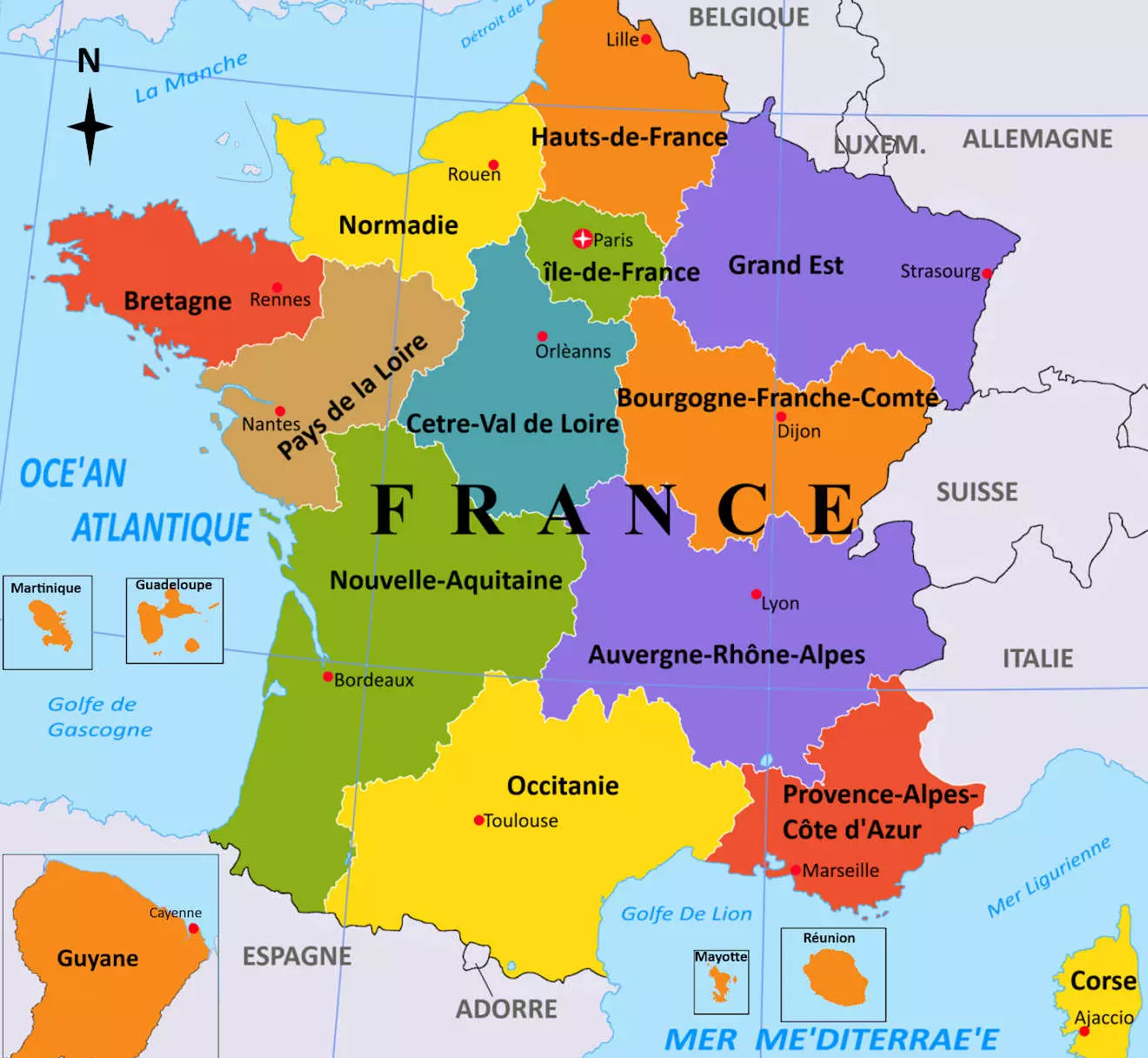
The French town of Pau in Southern France was recently voted the Number One destination in the world for retiring overseas. (SOURCE: 10 best places for retiring overseas 2020). In particular, the town was seen as providing a warm climate, good shopping facilities, safe low crime environment, good hospitals and an excellent range of sports facilities from hiking in the Pyrenees, to golf courses and tennis clubs.
It has been a couple of years since I have been in Pau, but my overriding memory is that it seemed a very organised sort of place. The old town is lovely and you got a feeling that it is a very safe place. Pau has good transport connections, with a TGV train station, a motorway that provides quick access to the Atlantic coast and to Toulouse, as well as an international airport in the nearby town of Lourdes. Also, they are mad about duck. There is even a restaurant in Pau (close to the castle) where every course (even dessert!) is made from duck. But I just wonder if there is enough going on in Pau. Also, I have to say that everyone I have spoken to about Pau being voted the #1 destination for retirement in the World, have all said the same thing - "Really??, what Pau in France?". That is both French people and Ex-Pats.
Similarly, Sarlat in Dordogne, was identified by the travel magazine, International Living, as one of the Top 5 places to live in France, especially for retirees. Yes absolutely, Sarlat is a great place to visit, but in terms of living there, I think that all the tourists would eventually get on your nerves. We were in Dordogne in the summer and it is very beautiful. But at the same time you couldn't help thinking 'what goes on here in the winter?'. I also have to say that I thought that the town of Brantôme was a prettier place than Sarlat.
The website ExpatRA has also produced quite a long list of the best places to live in France. In particular, they highlight the Var department (part of Provence) as an excellent retirement destination SOURCE: ExpatRA Best Places to live in France.
There are a couple of things I have to say about this. The Var is one of the most expensive places to live in France, especially along the coastline between Toulon to St Tropez and Sainte-Maxime. So you are going to need really deep pockets to consider moving to the Var.
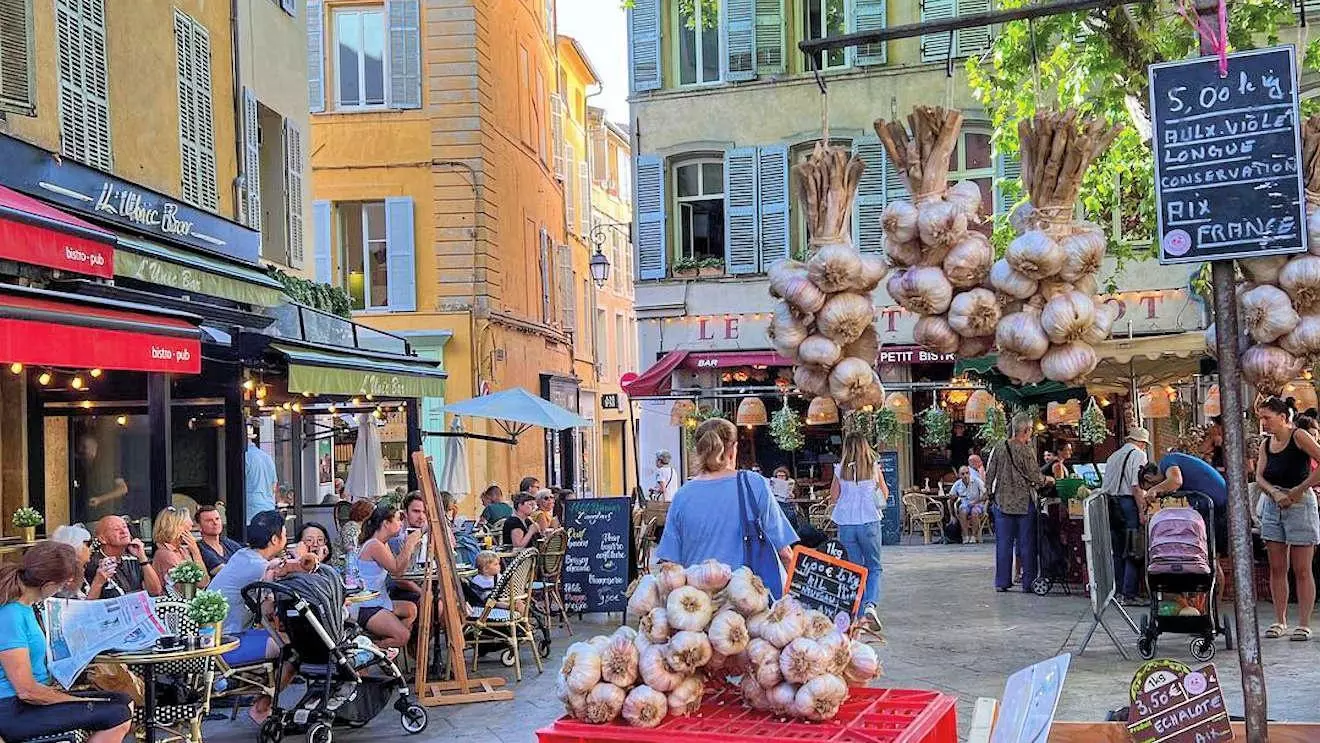 Aix en Provence France
Aix en Provence France
Also, when it comes to Provence, you have to ask yourself 'What there is to do here?'. I mean if you open up any guidebook or website listing the attractions in Provence, the Top 10 list of sites will be something like this
- Gothic church
- Local market
- Truffle festival
- Another gothic church
- errr . . . .
Yes, Provence has some beautiful villages and towns - the area around Salernes and Cotignac is really beautiful, Seillans is a very picturesque village and the Gorges du Verdon is stunning. But in the central part of the Var in between Draguignan and Brignoles - there is nothing there. Of course, the coastline of the Var in is another world. But the rest of it I am not so sure about. There is much more to do and see in the Languedoc. The Gard is a far prettier place and the property in the Var is just way over-priced.
So where else could you consider living in France? There are 2 very in-depth surveys recently published about the best places to live in France. Both of which make very interesting reading (I summarise the main findings here The 10 best places to live in France in 2024).
The French organisation, L'association des villes et villages studied over 34,000 different villages, towns and cities in France and assessed them against 182 different criteria. The research took over 2 years to complete and investigated everything from Quality of Life factors, to local healthcare, education, sports facilities, shopping and support for citizens who are in need of help.
The other in-depth study, was produced by the French magazine, L'Express. Whilst this may lack the thoroughness of the Villes & Villages study, it does provides a more straightforward list good places to live in France.
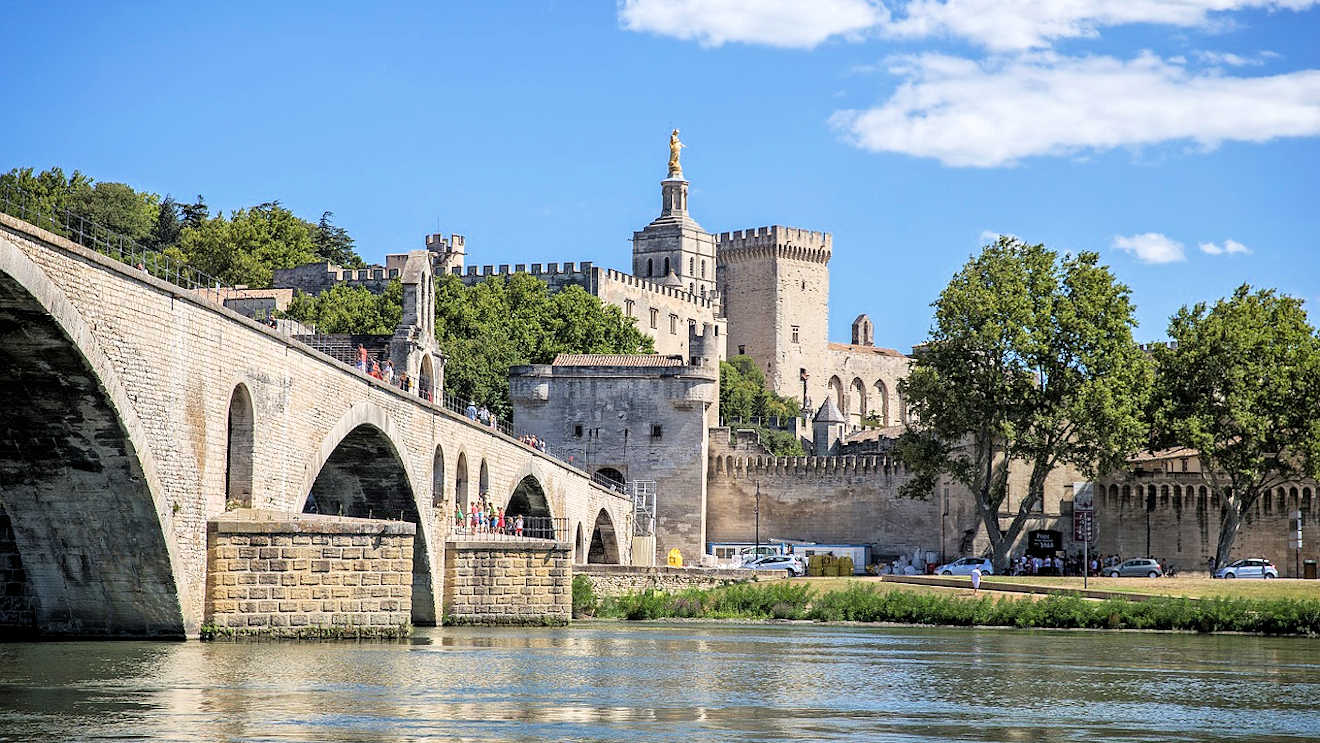 Le Pont d'Avignon France
Le Pont d'Avignon France
Among the more interesting places identified to live in France, included
- Le Mans - a large town in the Loire valley (with 140,00 inhabitant) and the location of the famous 24 hour motor race. The town was placed #5 in the list of best towns in France.
- Bayonne - a city on the Atlantic coast in South West France, which includes the resort of Biarritz and voted the 2nd best place to live in France.
- Avignon - the cultural capital of the South of France and once home to the Pope.
- Limoges in Central France was a city which appeared in the Top 10 of both studies. It particulare it was highlighted for " . . . peaceful living, affordable accommodation and clean air . . ."
- Annecy in Haute-Savoie, close to Geneva and the Swiss bordercame out as the #1 place to live in the whole of France (Annecy was also voted #7 in the list of the Best cities to live in France according to L'Express magazine). But as beautiful and amazing as Annecy is, whith average house prices topping €521,500, it is not the cheapest place to be (and only makes sense if you have a well-paying job with a Swiss bank).
- La Rochelle was voted #3 in the list of best large towns in France in the in-depth survey provided by L'association des villes et villages. La Rochelle is an historic port on the Atlantic coast in the Charente-Maritime department. La Rochelle has a reputation as a lively all-year-round place, with a good range of leisure facilities, a high-speed rail link to Paris, an international airport and a well-respected network of hospitals and healthcare facilities.
- Angers was voted #1 city to live in France according to L'Express magazine. It was described as ". . . a human-sized city with high-end healthcare and reasonable house prices . . .".
- Poitiers also appeared in the Top 10 list of places to live in France in both studies. It was praised for its " . . . great all round quality of life . . ."
- The Herault department runs along the Mediterranean coast and features the largest wine region in France. Like the rest of the South of France, it enjoys a warm Mediterranean climate, but aside from the 87kms of beaches , it is the inland area that really makes it stand out. Compared to Dordogne or Provence, the Herault offers lots to do and see, with 3 UNESCO World Heritage Sites, 540 listed historical monuments, 3 villages officially listed as the Most Beautiful Villages in France and 2 of the Grande Sites de France. The department has some of the best transport links in France and the capital, Montpellier, has some of the best hospitals outside of Paris.
If you are researching places to retire to in France, I would certainly recommend reading our article the 10 Places to Live in France in 2026, which covers some of the above destinations in a great more details.
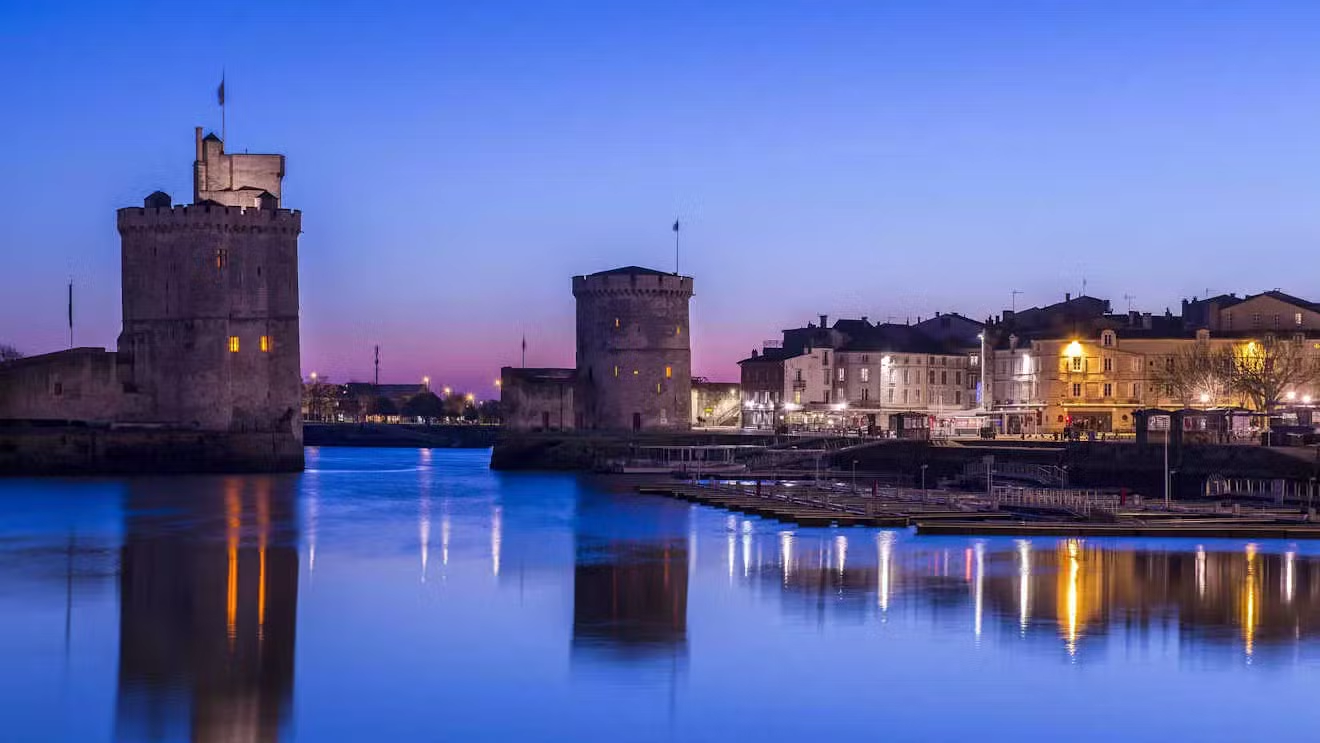 La Rochelle, Charente-Maritime
La Rochelle, Charente-Maritime
One thing I would recommend to anybody looking to retire in France, is to 'test drive' the local area before you make a decisive jump. Over the years I have seen so many people make a mistake by buying too early or buying in the wrong area. Usually, this is the result of:
- Panic buy - People coming over to France on a whistle top tour and then panic buy a house before they leave, without doing their due diligence on the area.
- Bargain hunters - People see a bargain on the internet and they think to themselves "What could possibly be go wrong at that price?" - well, there is usually a reason why a house is such a bargain.
- Homeowners syndrome - People sell up in the UK and then they think the next logical step is to buy somewhere in France - without taking time out and renting somewhere before they buy.
- Seduction - People fall in love with a house and then try and convince themselves that the local moribund village is charming - and usually after 6 months they realise that whilst they still like the house, they don't want to be in that particular area of France.
- Tunnel vision - People know a particular town or area of France because they have been going there for years on holiday - but, the summer can be a whole lot different than the winter, especially on the Atlantic coast. It doesn't hurt to explore different areas of France, even if all it does is confirm your original preference for location.
Obviously, we run a rentals website, so it is in my interest to tell you to rent a house in France whilst you thoroughly research the areas before you buy. But honestly, we have have seen so many people who end up renting through us and they have bought property in other parts of France. The trouble with France is that it is not always that easy to offload a property once you have bought it, especially if it is in a remote location or it needs further renovation work. It can take up to 2 years. So it is really important that you choose carefully. We have written an article about some of the Common pitfalls when buying Property in France and also How to rent a property in France long term, both of which might be worth a read.
Retiring to France: Visas, Pensions, Taxes and Healthcare
If you are thinking of spending your retirement in France, then you do need to do your background research before making the plunge. There are important considerations around healthcare, your pension, taxes (both income tax, social security and property taxes) and now Visas/French Residency.
Retirement visas

If you are looking to retire to France from the UK, unless you hold a European passport, you will now need to first, apply for a Long Stay Visa (which is also called French Residency). Thankfully, the French have made the process quite straightforward.
In France, whilst there are two types of Long Stay Visa process for citizens of a Third County (which the UK has now become). Rather confusingly, they are called virtually the same:
- the Long Term Visa used as Residence Permit (VLS-TS) - which is normally issued for a maximum of 1 year
- the Temporary Long Term Visa (VLS-T)
The general difference between the two types of long stay visa, is that the VLS-TS permits the holder to live in France for up to 12 months and it is renewable. The VLS-T is usually issued for between 4-12 months and is non-renewable. Normally the visa holder is not allowed to perform paid employment, although voluntary work and university placements are permitted
For individuals who are Retiring to France (i.e., they have reached the State retirement age) or who are not looking to work in France (i.e., they are taking Early retirement), the visa application process is quite straightforward. The main application process involves you providing the following information:
- Proof of medical insurance - either private medical insurance or PUMa registration (or an S1 or S2 Form from the UK Department of Health)
- Proof of accommodation in France - usually for the same duration of your visa
- Proof of legal status in your home country
- Proof of means of income - you need to demonstrate that you have sufficient income to meet the French minimum wage level (although savings can be taken into account in the absence of sufficient pension or other income).
- Attestation - a letter promising not to engage in employment in France
You will need to apply for a Long Term Visa used as Residence Permit (VLS-TS). Then once you are living in France, you can apply for a residency permit (see Carte de Sejour below).

One thing that you do need to be aware of, is that the minimum income you will need to prove that you have, to meet the means of income requirement, is currently €1,823.03 per month (gross), which equates to around €1,443 per month (Net), after income tax and social contributions. This represents and annual gross income of €21,876. Please note that this applies to each individual, so a couple would need to show a combined net income of around €3,600 per month.
The term 'income' is quite a broad category. So it covers both employment income and business income (if you are self-employed). It also includes retirment pension income and income from Trust funds. However, savings and investments are not technically classed as income.
In situations where an applicant doesn't meet the minimum income requirements, then consideration can be given to personal savings as a substituate or supplement for actual monthly income. No figures are provided by the French Consulate service as to what level of savings can be taken into account, but it is likely to be at least 2-3 times the annual minimum income requirement (so €1,823 per month x 12 months x 3 years = €65,628). It should also be noted that the savings will need to be fairly liquid - so money in a bank account or investment account will qualify, but stocks and shares or property holidings may not be considered. Also, in exceptional border-line cases, it is likely that a decision will be made to issue a Residency Permit, but for a shorter time period (for example 12 months) and the applicants will need to reapply for the permit to be renewed.
Carte de Sejour
Once you have obtained your Long stay visa and you have been living in France for 10 months, you can then apply then apply for a residency permit (Carte de Sejour). You are only able to start the application process within two months of the end of your long-stay visa (you must apply before your visa expires, otherwise you will need to exit France and start the application process from abroad). For the first 3 years, you will need to renew the Carte de Sejour annually. But after 3 years you can apply for a special category of the Carte de Sejour under the category of Retiree/Economically inactive. Normally, this Visa is issued for a period of 5 years (sometimes 10 years).
Healthcare in France for retirees

The French health care system is widely regarded as the best in the World. France spends 11.5% of its GBP on healthcare, it has one of the highest Doctor-to-Population ratios in the world and a high life expectancy rate of 79.5 years for males, 85.4 years for females. In France there is a universal health insurance scheme reimbursing 70% of medical costs for its citizens and long term residents.
If you are planning on retiring to France (and to live here for more than 3 months at a time), then it is a legal requirement for you to have health insurance in place. There are 4 different ways to arrange healthcare coverage in France:
- Private health insurance - you can arrange comprehensive private medical insurance to cover your stay in France. This could either be as part of your existing UK private health plan or you could take out a French private healthcare plan.
- Private-State health insurance - you can buy-in to the French state insurance scheme under the PUMa scheme
- State health insurance - you apply to join the French universal health care system and receive your Carte Vitale medical card
- Reciprocal healthcare - if you are in receipt of a state pension from the United Kingdom; then you can apply for an S1 certificate (or S2 certificate) from the HM Revenue and Customs in Newcastle*. This will provide reciprocal health care coverage in France, based on the standard reimbursement rates set by the French State.
To understand each health insurance option and which one will suit your particular circumstances, you can read our comprehensive guide to Health Care in France. This also explains the process for applying for French healthcare insurance (Carte Vitale) and PUMa buy-in scheme.
* If you do apply for an S1 or S2 form, once you have arrived in France, you then need to send this certificate to your local CPAM office and follow the same procedure outlined above. In the case of UK citizens, you will also need to notify the Department of Work and Pensions (DWP) that you have moved permanently to France.
In addition to the basic healthcare system in France, most people also have a supplementary health insurance plan called a Mutuelle, which are usually run by non-profit organisations. This supplementary health insurance covers them for most of the additional treatment costs and they will be re-imbursed direct to their bank account once the Mutuelle receives the payment receipts. This is normally done automatically by the Pharmicist or Dentist, but sometimes it involves sending off a paper copy to the offices of the Mutuelle. Depending on the level of coverage required, you basic Mutuelle insurance is about €30-50 per month per person.
Taxes in France for retirees

So, the obvious perception is that in France you get taxed to death. It is generally believed that the way France pays for its excellent road and TGV network, first class hospitals and superb cultural facilities, is through high taxes. It also has a dreaded Wealth Tax which is based on your Worldwide assets, not just those in France.
This is partially true. If you run a business in France, which I do, then the taxes are a bit uncomfortable - probably around 35%. But you need to be aware of a couple of things. In France, it is not the Tax that you have to worry about so much, it is the social charges. France is the inverse of the UK. Taxes are small, social security is high. Also, inheritance tax can be quite hefty (up to 45% for inheritances over €150,000 - although there are legal schemes to circumvent this). Finally, whilst there is a Wealth Tax in France, I recently ran a calculation for a client who had a total Wealth of $2.5 million. His Wealth Tax came to €2,500 per year. So in the grand scheme of things, this is chicken feed (although this particular client thought the idea of paying his fair share of tax was for the little people, not him).
I have been living in France for 16 years now. I know quite a few people who have returned to the UK from France. From what I hear through friends and family, they are now grumbling that they are paying more tax in the UK than they ever did in France.
So here are the rules. Once you have been living in France for 183 days* or if you register for a long stay visa or residency permit, then you will become liable for submitting a French tax return and paying your taxes in France. You will still have to complete a French tax return even if you have completed a tax return in the UK. France does have a double-taxation with the UK, which in theory means that you will not have to pay tax twice on the same income. However, here is rub:
if you would have paid more taxation in France on the income you have declared in the UK, then you can be liable for paying the difference in France
One other quirk about French taxes, is that whilst there is no personal tax allowance (i.e. a minimum income amount on which you do not pay tax). So, if in the UK, you are entitled to claim a personal tax allowance or apply for an exemption (which is not available in France), then you would need to pay the equivalent French tax on this 'exempted' income. The important point here though, is that you are only liable to pay tax not social security contributions, and that makes a very big difference.
In terms of Property Taxes, if you own a home in France you will be liable for paying Taxe Fonciere (similar to the old Rates system in the UK) and possibly, Council Tax (called Taxe d'habitation). But there is some good news for people of retirement age. People above the age of 67 are not liable to Taxe d'Habitation and even if you are below this age, if the property is your principal residence (not a second home), then you will also be exempt from paying the tax.
If you sell a property in France you are liable to a Capital Gains Tax of 19%. But the tax doesn't apply if the house is your principal residence.
Pensions in France
UK State pensions are taxable in France and must be declared in France. This is something that you obviously need to take into consideration before moving to France. Because in the UK the State Pension is not taxed, when it gets paid to it is received as gross income. However, there is some good news. Pension income up to €10,300 has a French taxation rate of 0% - so you will pay nothing, but you will still need to declare it. Pension income between €10,300 and €26,000 is taxed at 11% (and 3.8% social charges) and and Pension income over €26,000 is taxed at 30% (and a social charge of up to 9.1%).
What you do need to be aware of however, is that if you have a UK private pension on top of your UK state pension, then the two will be added together and the above taxation rates will be applied.
 If you need help with planning your retirement in France or advice on your pension arrangements, then I would certainly recommend that you contact Vania Lacey who works as a Pension & Financial Planning Advisor for deVere France, based in their Paris Offices. She recently gave me some excellent advice on the UK and French state pensions and I found her to be extremely knowledgable.
If you need help with planning your retirement in France or advice on your pension arrangements, then I would certainly recommend that you contact Vania Lacey who works as a Pension & Financial Planning Advisor for deVere France, based in their Paris Offices. She recently gave me some excellent advice on the UK and French state pensions and I found her to be extremely knowledgable.
Vania can be contacted by email at
Where to next . . . ?
If you are planning to Retire to France in 2026, then the following articles provide more information on applying for a long stay visa for France, opening a bank account, setting up health care in France and the best regions in France to live.
|
There are 4 main criteria that you must meet on your French Residency application, but the most important on is that you have sufficient financial resources to support yourself in France.
|
France regularly features in the Top 10 list of the best countries to move to. Here we analyse where are the 10 best regions to live, work and retire in France. |
|
If you are planning on moving to France and to live here for more than 3 months at a time, then it is a legal requirement for you to have health insurance in place.
|
How to open a bank account in France One of the first jobs that you need to do when you are moving to France is to open a French bank account. Everything in France is linked to having a French bank account.
|
|
Discover the best options for finding properties to rent in France long term and what information you will need to provide to sign a long term lease.
|
Discover how much it will cost to rent a house or apartment in France long term. These are the average house rental prices in France for a long term rentals for 2026.
|
 If you need assistance with planning your move to France and getting set up when you arrive, we are happy to recommend the services of HAMMOND HELP, a French Relocation & Insurance agency run by Nicole Hammond. Nicole's team and network of external consultants, can help you with everything from applying for long stay visas for France, setting up a business in France, opening bank accounts, arranging health insurance in France, organising car & home insurance and completing your French tax return.
If you need assistance with planning your move to France and getting set up when you arrive, we are happy to recommend the services of HAMMOND HELP, a French Relocation & Insurance agency run by Nicole Hammond. Nicole's team and network of external consultants, can help you with everything from applying for long stay visas for France, setting up a business in France, opening bank accounts, arranging health insurance in France, organising car & home insurance and completing your French tax return.
Hammond Help can be contacted by email at: Hammond Help by phone (English speaking line): +33 (0)6 32 07 84 13 and through Facebook: Hammond Help
You can also book a personal 30 minute telephone consultation with Nicole to answer all your questions in relation to your visa application and relocation to France. Visit Visa & Relocation Consultation to reserve a date and time for your consultation.


















